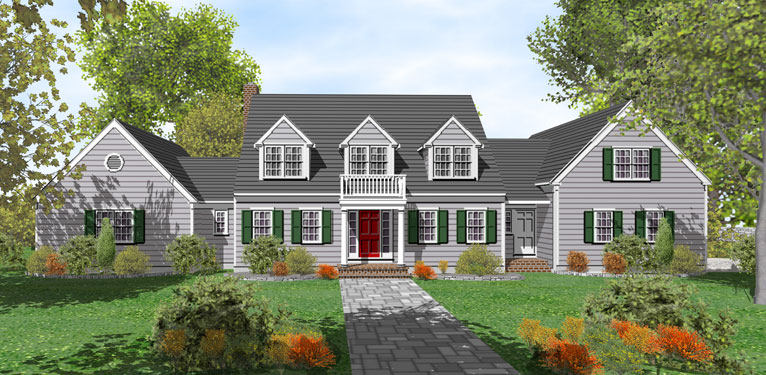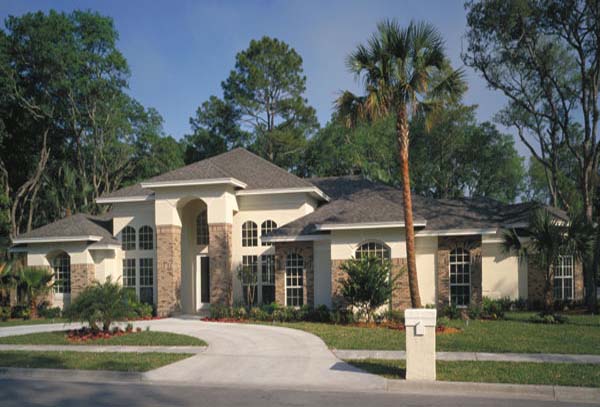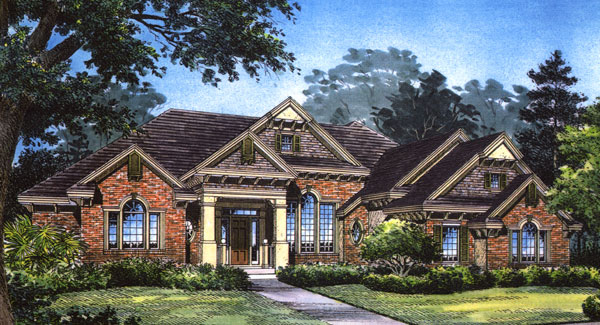Home > Future houses > Technology
Technology
Technology in houses refers to the integration of various technological advancements and systems to enhance the functionality, comfort, convenience, and efficiency of residential spaces. With the rapid advancements in technology, homes are becoming smarter and more connected, offering a range of benefits to homeowners.
Here are some key areas where technology is making an impact in houses:
I. Home Automation: Home automation systems allow homeowners to control and manage various aspects of their homes remotely. This includes controlling lighting, thermostats, security systems, appliances, and entertainment systems through mobile apps or voice assistants. Home automation provides convenience, energy efficiency, and enhanced security.
II. Smart Appliances: Modern houses are equipped with smart appliances that offer advanced features and connectivity. Smart refrigerators, ovens, washing machines, and other appliances can be controlled remotely, provide energy-saving options, and offer features like inventory management, recipe suggestions, and remote diagnostics.
III. Energy Management: Technology is playing a crucial role in optimizing energy consumption in houses. Smart thermostats, energy-efficient lighting systems, solar panels, and home energy monitoring systems help homeowners track and manage their energy usage, reduce utility bills, and minimize environmental impact.
IV. Entertainment Systems: Advanced audiovisual systems, home theaters, and media streaming devices provide immersive entertainment experiences in houses. High-definition TVs, surround sound systems, and wireless audio solutions allow homeowners to enjoy their favorite movies, music, and games with superior quality and convenience.
V. Home Security: Technology has revolutionized home security systems, making them more advanced and effective. Smart security cameras, motion sensors, doorbell cameras, and smart locks provide enhanced surveillance and remote monitoring capabilities. Homeowners can receive real-time alerts, monitor their properties, and control access to their homes from anywhere.
VI. Home Office and Connectivity: With the rise of remote work and the need for connectivity, houses are being equipped with dedicated home offices or workspaces. High-speed internet connections, Wi-Fi networks, and smart home integration enable seamless connectivity and productivity for remote workers.
VII. Health and Wellness: Technology is increasingly being used to promote health and wellness in houses. Smart home fitness equipment, health monitoring devices, air purifiers, and smart mattresses are designed to enhance overall well-being and create a healthier living environment.
It's important to note that while technology offers numerous benefits, there are considerations such as privacy, data security, and compatibility with existing systems. Additionally, the cost of implementing and maintaining technology in houses should be taken into account.
Overall, technology in houses is transforming the way we live, making our homes more efficient, connected, and comfortable. From home automation to energy management, entertainment systems to home security, technology is reshaping the modern house and enhancing the quality of life for homeowners.
Technology in Future homes
Technology in future homes is expected to revolutionize the way we live, introducing advanced features and systems that enhance comfort, convenience, sustainability, and connectivity.
Here are some key areas where technology is likely to make an impact in future homes:
I. Internet of Things (IoT) Integration: Future homes will be highly connected through the Internet of Things, enabling seamless communication between devices and systems. Smart appliances, thermostats, lighting, security systems, and other devices will be interconnected, allowing for centralized control and automation.
II. Artificial Intelligence (AI): AI-powered virtual assistants and smart home systems will become more sophisticated, learning and adapting to homeowners' preferences and behavior. These AI systems will anticipate needs, optimize energy usage, and provide personalized recommendations for improved living experiences.
III. Energy Efficiency and Sustainability: Future homes will prioritize energy efficiency and sustainability. Energy management systems will optimize energy usage, utilizing renewable energy sources such as solar power and energy storage systems. Smart grids and smart meters will enable efficient energy distribution and consumption.
IV. Smart Home Health and Wellness: Technology will play a significant role in promoting health and wellness in future homes. From smart beds that monitor sleep patterns to air quality sensors that ensure clean indoor environments, advanced health-monitoring systems will become integrated into the home environment.
V. Augmented Reality (AR) and Virtual Reality (VR): AR and VR technologies will enhance the home buying and remodeling processes. Homeowners will be able to visualize and customize their spaces virtually, try different furniture arrangements, and experience immersive virtual home tours.
VI. Smart Security Systems: Future homes will feature advanced security systems that integrate facial recognition, biometric access control, and real-time surveillance. Smart cameras, sensors, and alarm systems will provide enhanced security and monitoring capabilities.
VII. Robotics and Automation: Robotics will have a greater presence in future homes, performing tasks like cleaning, gardening, and home maintenance. Automated systems for chores and maintenance will free up time for homeowners, allowing them to focus on other activities.
VIII. Voice and Gesture Control: Interacting with smart home devices will become more intuitive and seamless through voice commands and gesture control. Homeowners will be able to control lighting, temperature, entertainment systems, and other devices with simple voice commands or hand gestures.
IX. Enhanced Connectivity: The future home will be highly connected, with fast and reliable internet connections throughout the entire living space. This will facilitate seamless communication between devices, as well as enable the integration of smart home systems with external services and platforms.
X. Sustainable Materials and Construction: Future homes will utilize sustainable materials and construction techniques to reduce environmental impact. Energy-efficient insulation, green roofs, and smart irrigation systems will contribute to more sustainable and eco-friendly living spaces.
Overall, technology in future homes will create intelligent, sustainable, and personalized living environments. With advancements in AI, IoT, energy management, and connectivity, homes will become more efficient, comfortable, and responsive to the needs and preferences of their occupants.
Appliances
Appliances in houses refer to the electrical and mechanical devices that are used for various tasks and functions within a home. These appliances are designed to make our lives easier, more convenient, and efficient.
Here are some common types of appliances found in households:
I. Kitchen Appliances: These include refrigerators, stoves, ovens, microwaves, dishwashers, and various countertop appliances like blenders, toasters, and coffee makers. Kitchen appliances help with food storage, preparation, cooking, and cleaning.
II. Laundry Appliances: Washing machines and dryers are essential for cleaning and drying clothes, while ironing boards and irons help with garment care. These appliances save time and effort in managing laundry tasks.
III. Heating and Cooling Appliances: HVAC systems, air conditioners, heaters, and fans are used to regulate the temperature and create a comfortable living environment.
IV. Entertainment Appliances: TVs, home theater systems, audio speakers, gaming consoles, and streaming devices provide entertainment options and enhance the audiovisual experience at home.
V. Cleaning Appliances: Vacuum cleaners, steam cleaners, and robotic vacuum cleaners help in maintaining cleanliness by removing dust, dirt, and debris from floors, carpets, and other surfaces.
VI. Personal Care Appliances: Hair dryers, electric shavers, electric toothbrushes, and grooming tools are used for personal hygiene and grooming purposes.
VII. Home Security Appliances: Security systems, including surveillance cameras, doorbell cameras, motion sensors, and smart locks, enhance the safety and security of a home.
VIII. Home Office Appliances: Computers, laptops, printers, scanners, and other office equipment are commonly used in home offices for work, study, and communication purposes.
IX. Smart Home Appliances: With the advent of smart technology, many appliances now have smart capabilities. These appliances can be connected to the internet and controlled remotely using smartphones or voice assistants. Examples include smart thermostats, smart lighting systems, and smart home hubs.
The use of appliances in homes offers numerous benefits, such as time-saving, convenience, improved efficiency, and enhanced comfort. They automate various tasks, allowing us to focus on other activities. Moreover, modern appliances often come with energy-efficient features, helping to reduce energy consumption and lower utility bills. When choosing appliances, it is important to consider their energy efficiency, durability, and suitability for the specific needs of the household.









